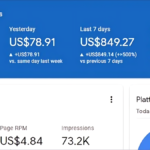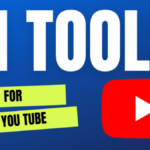Is SEO not working for your business?
Don’t worry, you are not alone. This is a common problem with most businesses and SEOs these days.
Google is constantly coming up with new algorithm updates and the competition is getting tougher.
Because of this, many SEOs and businesses find it difficult to rank on the first page of Google, even after putting in hours of work and money.
If you are one of them too and SEO is not working for your business as you hoped, then this content was written especially for you.
In this post, we share with you the 8 most common reasons why SEO isn’t working for you.
1. Ignoring the content’s quality
Larry Page and Sergey Brin founded Google with a great vision: to provide users with valuable and relevant information in a split second.
And it’s still Google’s main goal.
However, many people forget this fact and think that they can rank on Google without creating quality content.
But the truth is completely different than what these so-called SEOs believe. Google is constantly improving its algorithm to provide searchers with useful and relevant information.
And today it is almost impossible to rank on the first page of Google without creating some valuable content.
It doesn’t matter how many backlinks you create, how fast your website is, or how well you’ve optimized your on-page SEO.
No matter what SEO strategies you use, you should make your content your top priority.
And not just us, Google recommends it too.
That being said, many people have a lot of confusion about the term “quality content”. There is no way to measure the quality of content before you publish it.
But whenever you start creating your content, make sure it’s:
- Providing the user with accurate information
- Much better than what’s already available on the internet.
- Exceptional and distinct
- Engaging
2. Your website is extremely slow to load
The third reason why SEO isn’t working for you could be that your website is extremely slow to load.
Website loading speed is a crucial factor in Google ranking, and Google even rolled out a speed update in 2018 aimed at providing a faster and better user experience.
mobile user experience. Additionally, Google is rolling out a new algorithm update called “Core Web Vitals” that will directly impact Google search results.
In addition, a slow-loading website also increases your bounce rate and negatively impacts your website user experience.
And don’t forget that bounce rate and user experience also play an indirect role in search engine ranking.
So if you want your website to rank on the first page of search results, you need to make sure your website loads fast enough for users.
You can use tools like Google Page Speed Insights to measure your website’s current loading speed.
Then try to optimize your website for better performance. tics you can use to optimize your website for faster performance:
- Images should be compressed.
- Make sure your code is clean.
- Remove any unwanted plugins and resources from your website.
- Use a content delivery network
- Select a dependable hosting service.
3. You aren’t keeping track of your progress
Not only is tracking important for corporate strategy, but it’s also important for SEO.
You must track and measure the performance of your keywords and SEO strategy on a regular basis if you want your website to appear at the top of Google search results.
In business, there’s an adage that goes, “If you can’t measure it, you can’t improve it.”
SEO is a long-term process that requires patience and works to see results.
Tracking your keywords also allows you to assess the effectiveness of your SEO strategy and identify areas for improvement.
On the other hand, if you don’t track your keywords, you won’t know how much they’ve grown.
The biggest issue is: how will you track your keywords?
For that, there are essentially two possibilities.
You can either do it manually or utilize software to track your rankings.
Manually doing it will take a long time and may result in errors because humans are prone to making mistakes.
On the other hand, using rank tracking software will save you time while also providing you with more organized and reliable data.
You may utilize a rank tracking solution like Zutrix to handle all of your SEO tracking requirements, including precise keyword ranking tracking, real-time alerting, geo-based tracking, and reporting.
4. The Content Doesn’t Match The Intent Of The Search
Search intent is the specific goal that a user has when searching search engines for any search query.
It’s simply the backbone of SEO.
Because if you don’t pay attention, you might not be able to rank for any keyword even after applying all the important SEO tactics like building backlinks, creating quality content, page optimization, etc.
Google processes more than 3.5 billion search queries every day, and most of the time the user gets what he really wants.
And that was possible thanks to Google. Pay close attention to the user’s search intent and content. In simple terms, if you want Google to show your website at the top of Google search results, you must first align your content with the search. Keyword Intent.
Let me show you an example.
If you search for the keyword “best landing page builder,” you’ll find that almost all of the content that ranks on the first page is a digest post that mentions various landing page builders.
On the other hand, if you just search for the keyword “landing page builder” and remove the word “best,” you’ll find that most of the pages that rank on the first page are just branded landing pages.
You can clearly see how this affected the overall search result simply by removing a single word (“better”) from the keyword.
5. You’re most likely chasing highly competitive keywords
Many people have the misconception that searching for highly competitive keywords will bring them tons of traffic and revenue for their business.
Why SEO Isn’t Working For You. But the reality is very different.
When you’re just starting out and have a relatively low authority website, it’s almost impossible to rank. for every highly competitive keyword that industry-leading websites already rank for.
Even if you create 10x better content than existing ranking pages, the chances of your site ranking would be very small because of something called “trust”. Industry-leading websites already enjoy a high level of trust in the eyes of their audiences and also by Google. This gives them an extra boost in the search results.
However, when you start your journey, you may not be very confident about the market.
And for that, it has become quite difficult to compete with high authority sites.
So what’s the solution? The best solution to this problem would be to initially ignore these highly competitive keywords.
In the early stages of your journey, try to focus on the less competitive long-tail keywords that you can rank for more easily.
Start slow and try to make small wins.
And once you start getting results, you can try searching for medium or high competition keywords if that keyword is important to your business.
Topic: Difference Between digital marketing and traditional marketing.
6. Still Using Outdated SEO Techniques That Don’t Work
The days of creating spamming backlinks with tribble content to rank on Google are long gone.
To be honest, SEO used to be a piece of cake.
However, the situation has changed drastically.
Forget about ranking; if you utilize those strategies, you will almost certainly get penalized by Google.
Many people are still using old-school approaches like spamming backlinks, keyword density, and so forth.
And if you’re doing the same, you need to quit right away.
It will not only prevent your website from ranking on the first page of search results, but it will also harm its SEO.
So it’s best if you keep up with what’s going on in the SEO world and make your selections on that.
7. Concentrating on the Number of Backlinks rather than the Quality of the Link
You’re making a significant error if you’re more concerned about backlink number than link quality.
Backlinks are misunderstood by a large majority of people.
More backlinks Equal higher rankings, in other words.
However, this isn’t the case.
It makes little difference how many backlinks you get. What counts are the backlinks’ quality and relevancy.
Briefly:
One backlink from a high-quality, relevant website is far more valuable than hundreds of low-quality connections.
Building too many backlinks from low-authority and unrelated websites, in fact, might affect your SEO and search engine results.
8. Not Making Use of the Potential of Internal Links
The final reason why SEO probably isn’t working for you could be that you’re not taking full advantage of the power of internal linking.
If you rely heavily on external backlinks to rank your pages, you are missing a huge opportunity and wasting a lot of your precious time.
Internal links not only help Google to find and index your pages faster, but they also distribute existing link juice from your pages.
When used properly, internal links can act as a double-edged sword for SEO, even bringing your pages to the top of search results even if you don’t have external backlinks.
But to make the most of it, you need to use your keyword or related keywords in your anchor texts.










